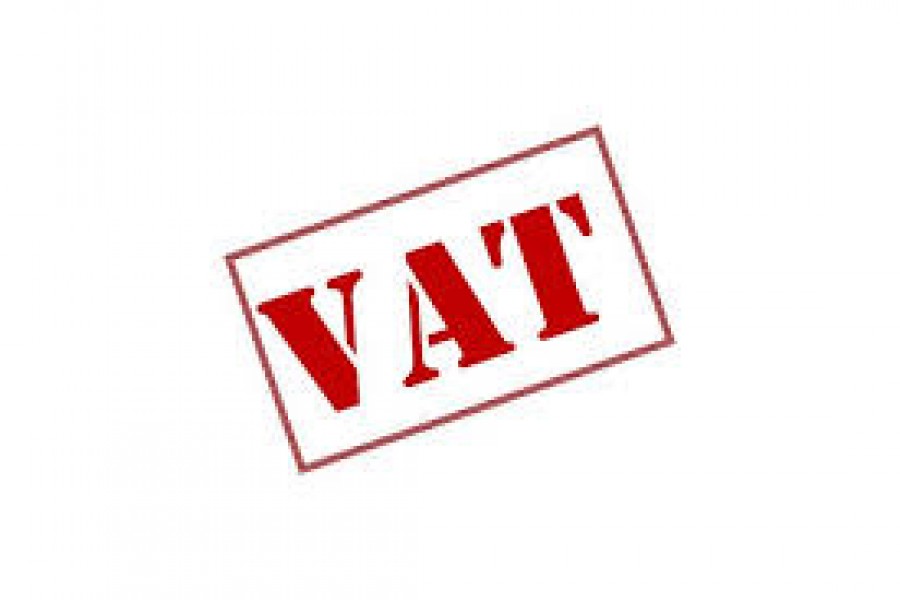After many ups and downs since its enactment in November 2012, the new VAT law is finally going to be implemented from July 01, 2019. The business concerns which mainly stood in the way of its implementation two years back have mostly been addressed by the recent budgetary measures. However, the new VAT regime can be made smoother. The authorities may pay attention to the following issues.
ADVANCE TAX (AT): Advance Tax has led to a sharp reaction for obvious reasons and a solution to the problem appears to be easy. It needs to be reshaped with the features of its predecessor Advance Trade VAT (ATV). In the ATV regime, ATV was exempted on some items including industrial imports, import by government, semi-government, autonomous body, United Nations organisations, embassies, privileged persons and organisations, educational and religious institutions, bonded warehouse license holding entities, import for supplying to government, semi-government, autonomous body, bank, insurance company, import under baggage rules, import by the President, import of vehicles by the Members of Parliament, import of relief, defence stores, temporary importation etc. There is apparently no reason for not allowing advance tax-free import of those items. The logic of paying at the import stage and refunding later will lead to more tasks but generate no revenue. Certainly that is not the objective of any taxation system.
TRADE VAT: Trading stage VAT is not well-organised in our country. However, with experiment of so many years we have developed a trade VAT regime that included several methods. These are: payment of trade VAT at standard rate and taking input tax credit, payment of trade VAT at truncated rate without taking input tax credit, equal value addition on which ATV has been paid at import stage without payment of further trade VAT without input tax credit and payment of trade VAT on the actual value addition on exempted purchase and package VAT for small shops. In the new regime, all these methods have been abolished including, surprisingly, the standard method. Only one method has been kept alive, the 05 per cent trade VAT. At least four methods of the above may be revived in the new regime for the cause of ease and revenue.
ENCOURAGEMENT TO STANDARD VAT: Tariff value, truncated base and multiple rates were among a few distortions in the previous VAT regime. These crept in to accommodate local realities. However, there was a positive feature in those regimes: those interested to remain in standard rate taking input tax credit had been allowed in the previous system. Encouragement to standard system is a sine qua non in VAT management. But in the present amended regime for the goods and services mentioned in the Third Schedule and for 05 per cent trade VAT, an option for any one who wants to remain in standard VAT regime is not there. This needs to be restored urgently.
VAT ON EMBASSIES: In the amended VAT regime only two Statutory Regulatory Orders (SROs) have been issued exempting VAT on embassies. But in the previous regime there were many such SROs. Generally, exemption to the embassies is given on reciprocal basis. It may create difficulties if the current facilities are decreased. USAID was given a facility of coupon system for exemption of VAT. Organisations of this nature that work on grants need to be facilitated through meaningful exemption mechanism.
VAT COLLECTION METHOD ON MEDICINE: Considering the size and sensitivity of this sector, trading stage VAT on medicine which was 2.4 per cent was collected at manufacturing stage. There was an order explaining detailed procedure. Discontinuation of the well-practiced procedure may cause much discomfort for all concerned. The new VAT regime needs to give a fresh look into the matter.
WAREHOUSING PROVISIONS: The storage of raw materials and finished goods at registered premises, including bank godowns or other warehouses, is a well-practised activity in business today. Everybody cannot create enough storage facility at their own premises. Preserving others' goods is a well-practiced service in almost all economies, including Bangladesh. There was a VAT regime on this but the amended VAT regime does not include any such provision. Rather than easing business, it may create more challenges.
FEES FOR VAT CONSULTANT LICENSING EXAMINATION: The fees for attending examinations for obtaining VAT Consultant licence has been steeply enhanced from Tk 500 to Tk 10,000. This 20-time increase was unexpected. Under the same umbrella of the National Board of Revenue (NBR), the Income Tax Practitioners' examination fee is Tk 300 only. Is there any competitive examination in the country where the examination fee is so high? Possibly not. This will discourage proper candidates from attending the examination. So, the VAT system may not get competent professionals to render better services. The fees should be reduced to Tk 500.
VDS ENTITY VS TURNOVER TAX: As per section 2(21), an establishment with annual turnover of Tk 10 million qualifies to become an withholding entity, i.e. such establishment requires to deduct VDS (VAT deduction at source). Section 4(2)(d) stipulates that an withholding entity must be VAT registered. In that case, all withholding entities shall require VAT registration. But section 2(57) stipulates that an establishment with annual turnover of Tk 30 million or below shall get Turnover Tax enlistment and can pay 4.0 per cent Turnover Tax. These provisions are conflicting. If all VDS withholding entities require paying VAT and if Tk 10 million annual turnover is the qualification to become VDS withholding entity, then an establishment with Tk 30 million annual turnover cannot pay Turvover Tax. So, to qualify for withholding entity Tk 30 million can be fixed as threshold. Or all withholding entities have to take VAT registration. This matter demands attention of the authorities concerned.
If the above concerns are addressed, the VAT system of the country will become more business friendly and easily implementable.
Dr. Md. Abdur Rouf currently works at a World Ban- financed VAT-related project as a Specialist. The opinions expressed in this article are his own.


